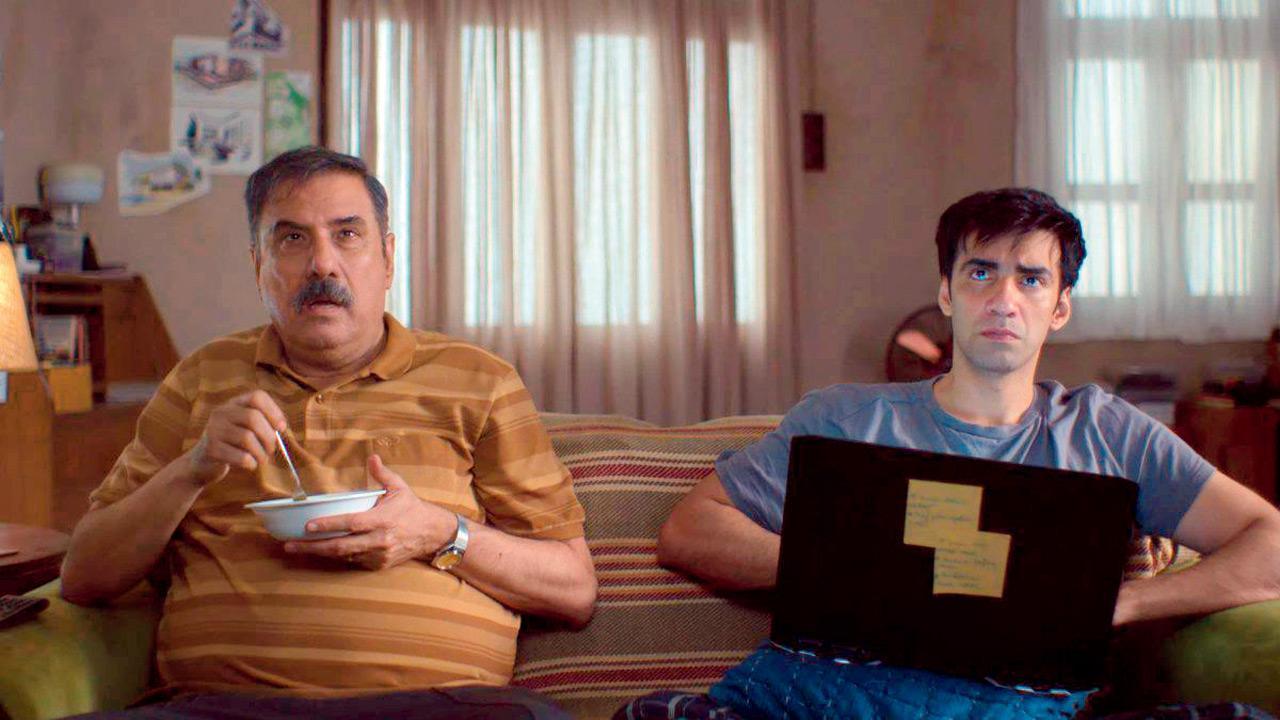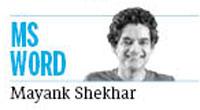Film acting debut at 42, directorial debut at 65… I ask the indefatigable Irani: Is there an age to fulfill your dream?

Boman Irani and Avinash Tiwary (right) in a still from The Mehta Boys
 At the maiden public screening of Boman Irani’s directorial debut, The Mehta Boys (2025; Amazon Prime Video), in Chicago, a lady in the audience introduced Boman to someone she felt he’d be “shocked” to meet.
At the maiden public screening of Boman Irani’s directorial debut, The Mehta Boys (2025; Amazon Prime Video), in Chicago, a lady in the audience introduced Boman to someone she felt he’d be “shocked” to meet.
ADVERTISEMENT
That gent was Mehraboon Irani, grandson of the father of Indian talkies, Ardeshir Irani (Alam Ara).
Boman says, “This was my Cinema Paradiso moment.” He refers to Alexandra Cinema, in South Bombay, that he grew up right opposite—spending all his time watching movies, examining posters, simply hanging out with the projectionist, Lakshman, upstairs.
Ardeshir’s Imperial Movietone owned Alexandra. Ardeshir’s son used to buy wafers from Boman’s family shop, nearby. Even the gramophone record for the theatre’s interval music, Berlin Melody, was gifted to the owners by his father.
This could also pass for Boman’s Parsee heritage, given his community were really the pioneers of filmmaking in Bombay. Only, that “you don’t see that representation in the movies anymore; their population having also subsequently dwindled,” he says.
In his own way, you realise Boman reversing some of that, right from his first film’s curtain-raiser, as it were. The screen opens to the roaring lion of Metro-Goldwyn-Mayer (MGM). MGM originally owned Dhobi Talao’s Metro Cinema.
This is followed by Boman’s own production logo, Irani Movietone, “borrowed from Wadia Movietone, Minerva Movietone; [indeed Ardeshir Irani’s] Imperial Movietone!”
Given the cinema history-buff that I know Boman is, pretty sure he got goosebumps, when he saw that intro finally play on the big screen.
He tells me, “I was crying. This was at [Colaba’s] Regal Cinema, while I was observing every seat, remembering which movies I’d watched, on each seat, and how many times!”
Boman is brilliant in The Mehta Boys, both as actor, and director. As is the co-star, Avinash Tiwary, his onscreen son.
Boman plays a crabby old father—who was once a typewriting instructor, back in Navsari. Which actually tallies with his director-friend Rajkumar Hirani’s dad’s profession, from Nagpur, I point out. He agrees.
The Mehta Boys is a father-son relationship drama. Most maiden works are semi-autobiographical. Boman actually never met his own father, who passed away shortly before he was born.
What was he like? Boman never really wanted to know: “People would say he was a good man, and that was good enough. I’m not being cold about it. Because my mother was always there for me.”
His mom would often tell him about the movies his father loved: “Vertigo was the last he watched. She’d talk about where they watched what, say at Strand [Cinema], or when, that is, the night Mahatma Gandhi died.”
Growing up, one by one, Boman burnt through the entire watchlist, mainly from the 1940s, ’50s: “Take, Francis the Talking Mule (1950). My father would laugh and laugh, watching it. I would get that movie, and do the same!”
And then, take that scene in The Mehta Boys, with dad-son laughing non-stop to Laurel & Hardy, before a TV—feels like Boman imagined his late father in the couch.
Isn’t it such an interesting way to develop a relationship with a dad you never knew—through the movies he deeply loved! “Well, I never understood it, until you made me articulate it right now,” Boman says.
That said, he points out, it’s one thing to be a movie-geek—you’ve gotta “graduate to learning, to write, and direct”, in order to actively practice the art/craft.
Boman’s first writing credit was for his debut film itself as an actor, i.e. Ram Madhvani’s Let’s Talk. Ram had brought over a script, about two characters, thrown into multiple scenarios.
“Let’s rewrite it,” he offered. They did. Before that, Boman says, he’d spent 14 years on stage; equal number of years as a professional photographer. Also, the same number of (overlapping) years, minding his family wafer shop.
This is, besides, famously starting out as a tall, young, handsome in-room-dining waiter, with a booming baritone, at Mumbai’s Taj Mahal Palace Hotel.
All along, Boman recalls, he wholly kept up with the movies—knowing that he’d be an actor. Those who watched Let’s Talk couldn’t stop talking about Boman. He was 42, by then.
At 44, he delivered Hirani’s Munnabhai MBBS. Soon thereafter, he had a second or third billing, in every other Bollywood movie—hitting 100 (films), before most with longer years at the movies.
Surely, he wasn’t keeping count, when he took off to study screenwriting at New York University. Which is where he met screenwriter Alexander Dinelaris, with his script, at a coffeeshop, where passersby gave Alexander their phone to click pix with Boman, saying, “Do you have any idea who you’re sitting with?”
Of course, Alexander had no idea. By then Alexander himself had barely any credits, outside of working on a “small art-house film”.
That’s Birdman, which he picked up an Oscar for! They stayed in touch; wrote The Mehta Boys together. Boman made his directorial debut, at 65. He says, “I don’t like using the word, late. It was meant to be.”
For a society obsessed with youthful passions and following dreams, Boman’s the man, obviously, to ask if there is any age to go for whatever it is that you seek, professionally. Well, he is the answer; isn’t he.
Mayank Shekhar attempts to make sense of mass culture. He tweets @mayankw14 Send your feedback to mailbag@mid-day.com
The views expressed in this column are the individual’s and don’t represent those of the paper.
Boman Irani and Avinash Tiwary (right) in a still from The Mehta Boys
 Subscribe today by clicking the link and stay updated with the latest news!" Click here!
Subscribe today by clicking the link and stay updated with the latest news!" Click here!







